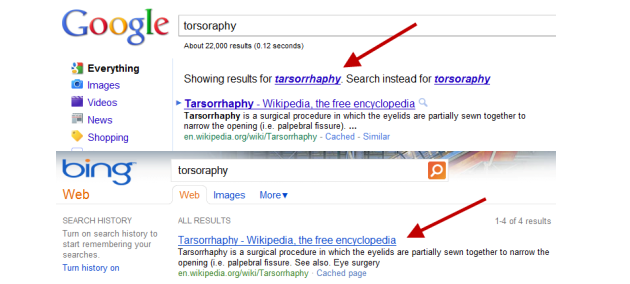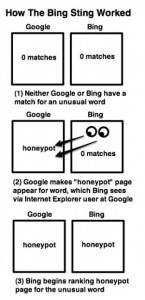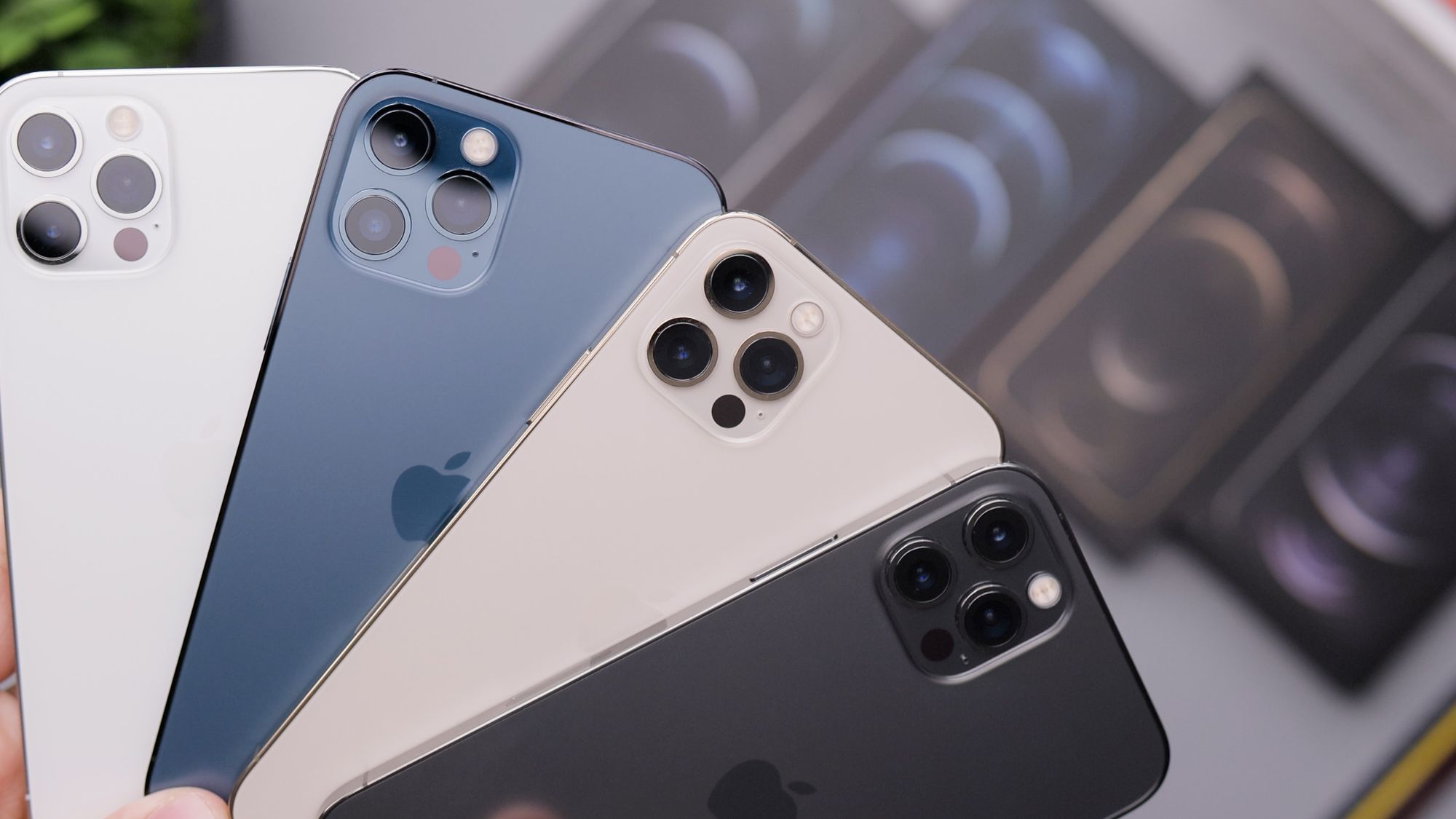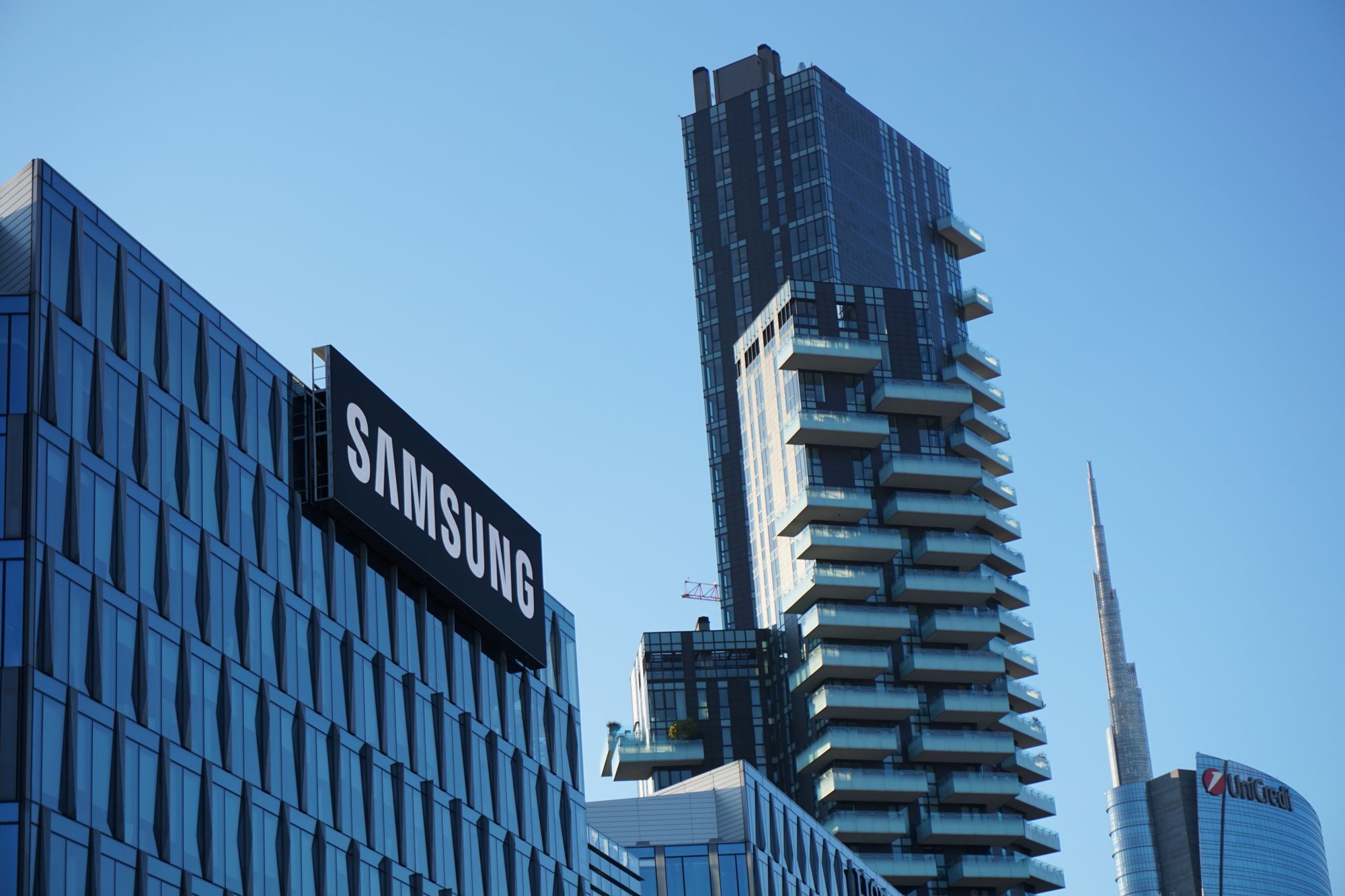Google Accuses Bing Of Stealing Search Results

Today Google is pointing the finger at Microsoft’s Bing calling it out for stealing search results from their search engine. Google claims that they have run a lengthy operation that, they claim, proves Bing has stolen search results from Google. They say Bing watches what people are searching for on Google and clicking on the most, then they use that information to improve their own search listings. So far Microsoft nor Bing has denied this action.
The result of all the piggybacking is supposedly improving Bing’s results while stealing information from Google’s own work. The metaphor Google uses is similar to leaning over during a test and copying off Google’s answer sheet.
“I’ve got no problem with a competitor developing an innovative algorithm. But copying is not innovation, in my book.†says Amit Singhal, a Google Fellow who oversees Google’s ranking algorithm.
In an email response sent to a writer over at Search Engine Land Stefan Weitz, director of Bing, responded with a statement that did not deny Bing’s actions:
As you might imagine, we use multiple signals and approaches when we think about ranking, but like the rest of the players in this industry, we’re not going to go deep and detailed in how we do it. Clearly, the overarching goal is to do a better job determining the intent of the search, so we can guess at the best and most relevant answer to a given query.
The red flags and bell whistles went up way back in October 2010, when Google noticed an increasing overlap in search results of the top 10 searches over earlier months. The indications also increased when Google noticed the number one search result was strangely the same one Bing came up with.
How Google’s Operation Worked

After seeing all these warning signs Google decided to do a little test of their own to prove that Bing was piggybacking off their results. So Google hatched a plan, for the very first time Google built-in code to the search engine to force one search result above all others.
Google chose a particular search term that did not come back with any results on either Google or Bing and decided to lay their trap then.
When the plan was all setup in December 2010, Google told its employees to go home and with the Bing toolbar installed on Internet Explorer, search for one particular search term on both Bing and Google. The searching operation started on December 17 and by the turn of the new year Bing was showing the same, fabricated result as Google in its search query.
Needless to say, Bing has some explaining to do. Many sources say that what Bing has done is not illegal so no legal action can really be taken.
Microsoft says that they have not copied anything, but what do you think?




